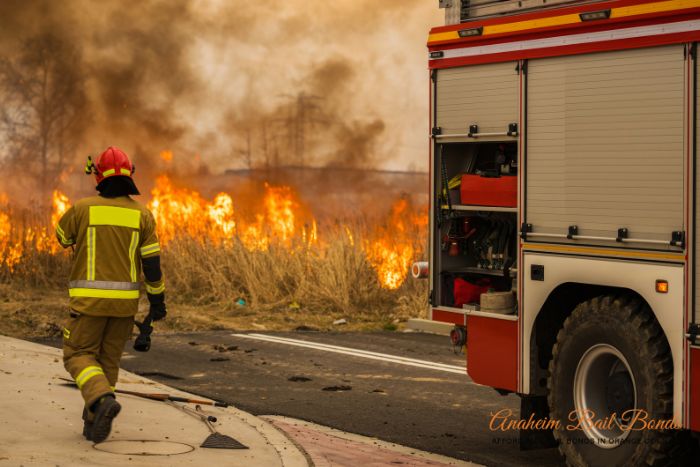
01 Jul Start Preparing for Wildfire Season
Wildfires are a problem in California and 2023 doesn’t look like it’s going to be an exception to the rule. While some believed that the fact that it was a bit wetter than normal this winter would mean avoiding problematic wildfires, the experts disagree, according to Accuweather, it’s highly likely that wildfires will lead to the destruction of anywhere from 400,000 to one million acres of California will burn in 2023.
If the predicted wildfires do hit the state, that means homes, farms, forests, wildlife, and livestock will be lost. Some of the loss is unavoidable. However, while you might not be able to save your home or personal possessions, with some wildfire safety preparation, you can make sure that you nor anyone you live with loses their life during California’s 2023 wildfire season.
The first thing you need to do when preparing for the 2023 wildfire season in California is to pay attention to both the news and the weather. The drier and hotter it gets, the greater the likelihood of a wildfire. The same is true if a storm is coming. All it takes is one lightning strike to start a wildfire. As soon as you learn that there is a wildfire that could conceivably endanger your home, it’s time to leap into action.
The first step is creating a defensible space around your property. This is a space that should be about 100 feet away from your buildings and is free of clutter and flammable items. It is highly recommended that you outline this defensible space with things like concrete paving stones, nonflammable mulch, gravel, and even sandbags that will slow the spread of the wildfire and help prevent it from burning your buildings. Once you’ve done everything you can to protect your home and outbuildings from the flames, it’s time to create an emergency kit. Even if the wildfire doesn’t reach your home, there is a good chance that you will lose things like power and even water if you don’t use a well.
Your emergency kit should include:
- Facemasks
- Inhalers
- A minimum of three gallons of water per person living in your home
- A three-day supply of food
- Credit cards, checkbooks, cash
- Spare keys
- Emergency contact phone numbers
- Extra clothing
- A way to charge phones
- Flashlights
- Identification
When you’re putting together your emergency kit, make sure you remember to fill it with supplies for your pets. Fueling up your vehicle is the next thing you should do. If you have to evacuate, you don’t want to have your exit plan impeeded because you don’t have any gas. It’s not a bad idea to keep your wildfire emergency kit in your vehicle so that you are ready to go if the wildfire gets dangerously close. When it comes to wildfires, you can’t afford to ignore evacuation orders. Not only will failing to evacuate put you in terrible danger, but it will also make the jobs of the firefighters who are struggling to protect your property more difficult since they’ll have to worry about you as well as attempt to put out the flames.
